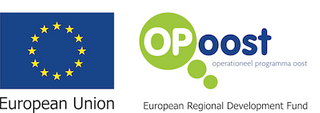The Radiology department at Radboudumc has a long tradition in breast image analysis. Two projects are currently running in the Diagnostic Image analysis Group. MARBLE studies the use of deep learning to improve the screening of breast cancer with MRI, DBT and mammography. The IMAGINE study aims to find image features on mammograms that can distinguish aggressive breast tumours from those that would never threaten a woman’s life.
While population-based breast cancer screening with mammography has shown to be very effective, mammography alone is not sufficient for the adequate screening of women who are carriers of genetic mutations or have other risk factors for breast cancer. In this project, we research how you use prior imaging and associated clinical information to improve the detection and classification of cancer using deep learning in these high-dimensional images. In particular, as prior information in the form of mammography, digital breast tomosynthesis or MRI is often available we will investigate how to use this information to improve the performance of the detection and classification systems. A part of the project is devoted on researching unsupervised methods to ensure stability of these models to different acquisition and machine parameters. The project is in close collaboration with clinicans and involves research to determine the optimal moment of cancer detection, the value of the developed methods for earlier cancer detection and the consequences of later detection on prognosis. In MARBLE our industrial partner Screenpoint Medical, providing valorization and the Data Science group at the Radboud University are directly involved.
The IMAGINE study aims to find novel and confirm established image features on mammograms in the breast cancer screening programme that can distinguish aggressive breast tumours from those that would never threaten a woman’s life. To identify these features, computer algorithms will be used that allow for in-depth image analysis. In the IMAGINE project, these image features will be combined with pathological and clinical information to investigate whether they have a potential to distinguish between biological subtypes of breast cancer and predict the risk of breast cancer recurrence. This may improve screening practice by detecting aggressive lesions that need treatment in an early stage and preventing overtreatment of harmless disease. In practice, identification of these image features could assist the screening radiologist in deciding when referral to a hospital is necessary or when monitoring is justified. The IMAGINE study is a multidisciplinary collaboration between experts from Radboudumc, the Netherlands Cancer Institute, UMC Utrecht and the Dutch Expert Centre for Screening.
Funding





